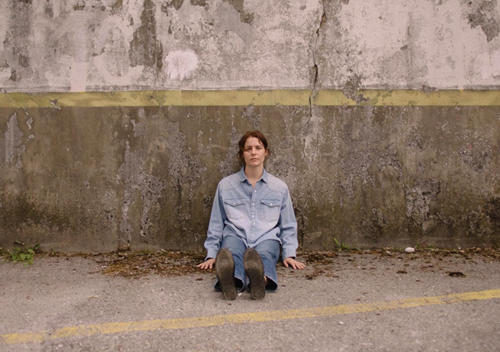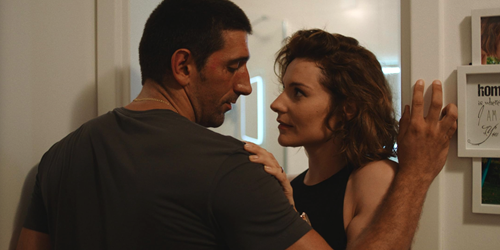By: Robert St. Martin
Los Angeles, CA (The Hollywood Times) 5/7/2024 – On Friday evening at the Laemmle Town Center Theatre and as part of the SEEfest Film Festival line-up was the screening of a new feature film from Croatia – Only When I Laugh directed by Vanja Juranić. Set in the coastal city of Zadar and loosely based on the well-known case of Ana Magaš, the film deals with a young woman Tina, the mother of a little girl Mara, and her relationship with her husband (and Mara’s father) Fran. Almost 20 years ago, a young Croatian woman named Ana Magaš was put on trial and eventually sentenced to prison for the murder of her husband, after having suffered years of physical and emotional abuse in her marriage.

Vania Juranić wanted to shift the focus of Only When I Laugh away from the “true events” of the Ana Magaš case and examine the hypocrisy and deep-seated patriarchal biases of Croatian society that still allow men to be abusive to their wives and assume they can get away with it. The lead actress in the film is Tihana Lazović who plays the role of Tina, the mother of an elementary-school age daughter Mara (Elodie Paleka). As a wife, she has to take care of thome and does the daily chores for her husband, Frane (Slavko Sobin). As a daughter-in-law, she has to show a certain type of respect for his parents. When her life is viewed from the outside, she has nothing to complain about, because she married “well” and does not have to “work” for a relatively comfortable existence.

However, Tina has an ambition to be more than just a housewife. After meeting a former college friend, she decides to try to go back to her Psychology studies that she abandoned after meeting and marrying Frane. She gets little to no understanding, let alone support for the idea, from her mother (Serbian actress Jasna Đuričić), who, belonging to another generation, simply does not comprehend it. After all, her daughter accepts the patriarchal model of Croatian society and that is all she knows. Tina’s circle of friends, just like Tina, married “well” after secondary school and are satisfied with their housewife lifestyle.

Meanwhile, when Tina enrolls at the university and takes up the study of Psychology, Frane reacts to the idea through sabotage and sometimes violence. As a student, Tina needs time to study and that means she begins to neglect some household chores and Frane is less than understanding about that. Eventually her sense of independence with her academic pursuits and her comradery with other university students makes her want time to herself. The situation escalates until one night after a misunderstanding, Frane beats her up badly and she attempts revenge in self-defense.
Tihana Lazović dominates the screen with her presence and keen instincts in an emotionally demanding role, but also creating different types of compellingly uneasy chemistry with other actors. Slavko Sobin is quite terrifying as the husband who demands obedience and gratitude from his wife, while Jasna Đuričić, as Tina’s mother, convincingly plays the role of a woman caught between a traditional worldview and the maternal instinct to help her daughter break the chains of the very same tradition. As Tina’s ambiguous husband, who varies from a “normal husband,” to a brutal abuser, to a man broken by a grudge, Sobin is extremely convincing.

I am not sure that Juanic’s film has the most effective structure in the third act, where we come to realize what happened in a violent altercation between Frane and Tina that suddenly lands her in court for a short trial and sentenced to prison. In the end, Only When I Laugh might not be a groundbreaking piece of cinema, but it is well thought through and well-acted. More important is probably the attention the film brings to issues of domestic violence in Croatian society and the antiquated assumptions of the judicial system.





